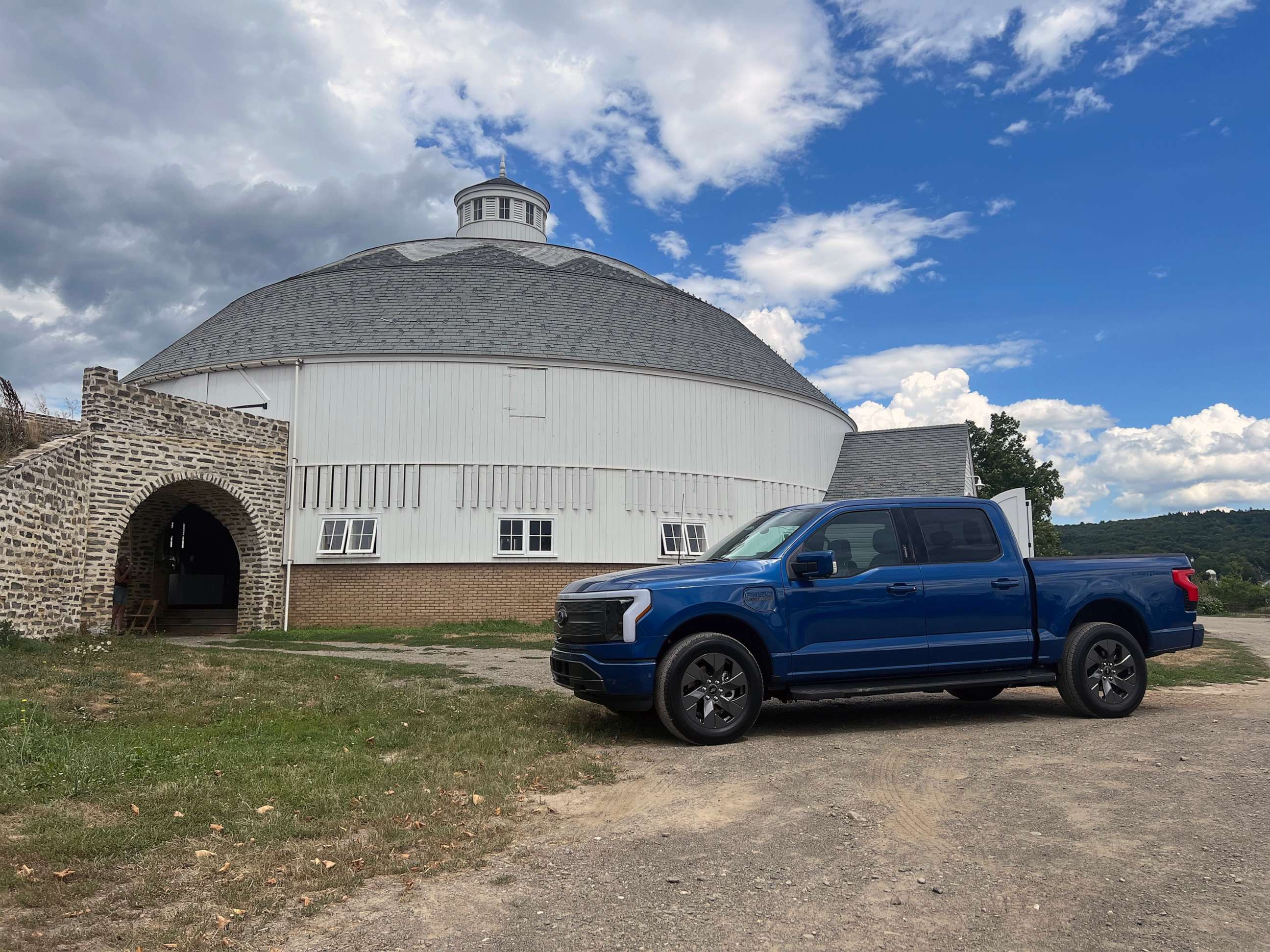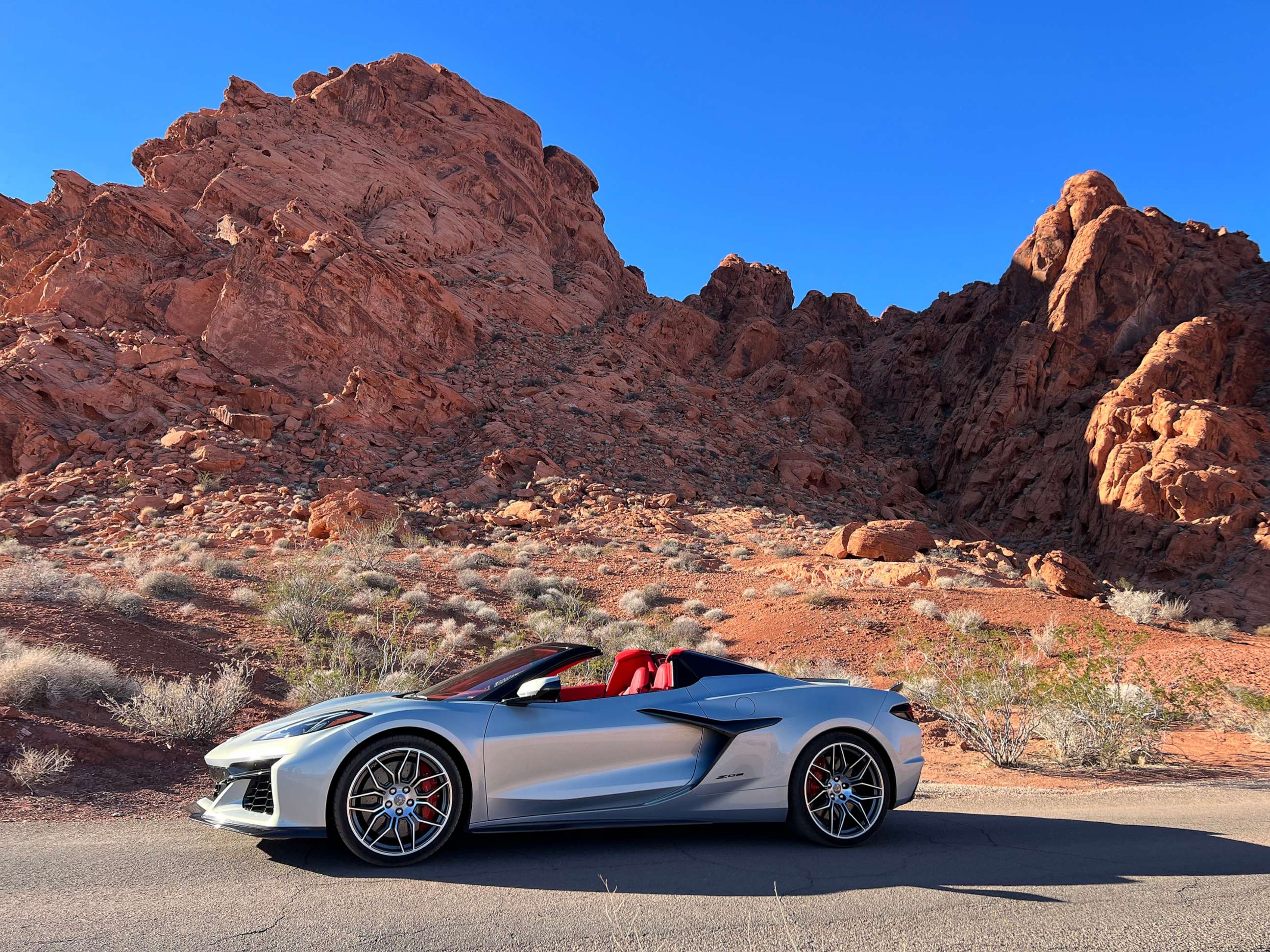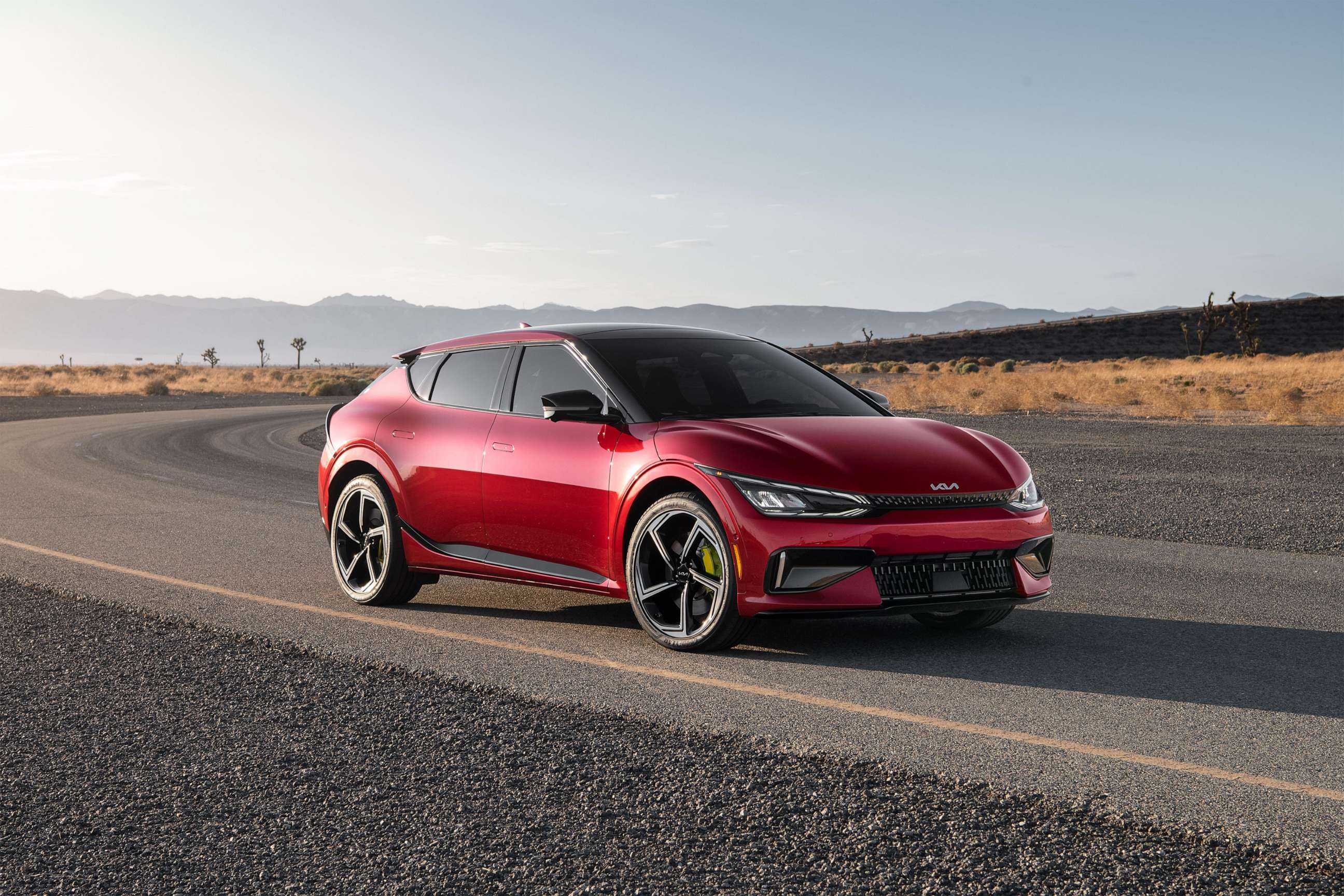5 cars that shook up the auto industry in 2022
The automobile got a whole lot better in 2022. Electric vehicles traveled unprecedented miles on a single charge. Sports car performance reached a new pinnacle. Electric pickup trucks quested and conquered.
Here are five vehicles that are shaking up the industry and changing how Americans drive.
F-150 Lightning
Ford Motor Co. took America's top-selling pickup truck for 40 years and swapped a gas-powered engine for an electric motor and battery. The results? The pioneering F-150 Lightning. The truck, nearly identical to its F-150 sibling, has been an instant success and the Dearborn automaker said it is on track to sell 15,000 units in 2022.
"Ford understands the truck customer and applied that expertise to the F-150 Lightning," Ed Kim, president of AutoPacific, told ABC News. "This is a really good truck. You're driving something the size of a small house but it's so fast."

The F-150 Lightning delivers on what matters to truck owners: power, performance, towing capabilities and road manners. Supply chain constraints and rising material costs have forced Ford to drastically raise the price of the truck.
"This is the most important EV to launch since Tesla's Model 3," Tyson Jominy, vice president of data and analytics at J.D. Power, told ABC News. "It's changed perceptions of EVs and is monumental for the industry."
GMC's Hummer EV pickup has proven that it, too, can withstand the gruelling demands of truck traditionalists. The 9,000-lb. behemoth can masterfully plow over boulders and nimbly weave through narrow, dirt paths with its excellent rear steering while also accelerating from 0 to 60 mph in 3.0 seconds. Did we mention the horsepower?
"You're buying this vehicle for lots of reasons. One of them is 1,000 hp," Al Oppenheiser, the chief engineer of the Hummer EV, told ABC News.
K.C. Colwell, Car and Driver's executive editor, said the R1T electric pickup from startup automaker Rivian caught his attention this year. The young company, which has been plagued by production recalls, also introduced the R1S pickup EV this year.
"I am really impressed with the R1T," Colwell told ABC News. "Rivian built a really good EV that happens to be in the shape of a pickup. The interior materials are high quality too."
Corvette Z06
The 69-year-old Corvette will soon succumb to electrification. Before that happens, however, enthusiasts can savor the recently launched Z06. The outrageous sports car thrills, delights, titillates and intoxicates drivers and passengers alike with its all-new naturally aspirated flat-plane crankshaft V8 engine, a mighty piece of engineering wizardry.
"This car is more powerful than the last generation," Tadge Juechter, Corvette's executive chief engineer, told ABC News. "When we started the project it was a bit of a gut check. We weren't sure we could match the output of the supercharged small block [engine]. We pushed as much as we could."
Car and Driver included the Z06 on its 10 Best Cars for 2023" list, noting that the "track-focused monster" puts the "exotic-car world on notice." Colwell said Chevy reached "peak Corvette" with this model.
"It was General Motors' desire to make this very engaging -- even more so than the base Stingray," he said. "I am amazed the Corvette team was able to convince GM execs to design a brand-new engine for this Corvette."

Jack Holmes, co-star of the popular SavageGeese YouTube car channel, bought himself a Z06 when he learned it would be one of the last naturally aspirated, high-revving V8s on the market.
"This is a swan song for the engineers ... the Z06 is viewed as their lives' work," he told ABC News. "No car matches it for value and performance."
Artura
In just 11 years, British marque McLaren has wowed the automotive community with its stunning, lightweight supercars. One of the company's most-famed conveyances, the P1, was a limited-edition hybrid that paired a 3.8-liter V8 twin-turbocharged engine with a 132-kW electric motor (and fetched more than $1 million when it was in production). The Artura can be charged to an 80% charge level in just 2.5 hours with a standard EVSE cable. The batteries can also harvest power from the combustion engine during driving, according to McLaren.
Now, McLaren is returning to electrification in its Artura, the company's first-ever series production plug-in hybrid. At 3,303 lbs, the Artura is the lightest in its class and also the most fuel-efficient McLaren thanks to a new powertrain and MCLA platform. A twin-turbocharged 3.0-liter V6 engine mated to an electric motor and energy-dense battery pack produces a combined 671 hp and 531 lb-ft of torque.
"The Artura is more accessible than the P1," Nicolas Brown, president of McLaren's Americas region, told ABC News. "It's a technological leap forward -- our moon shot."

The sports car, with McLaren's characteristic dihedral doors and dramatic air vents, gets an estimated 11 to 19 miles of electric range, giving customers "the right blend of technology," according to Jamie Corstorphine, McLaren's director of product strategy.
"Customers want the engagement from the combustion motor but they also want the flexibility of having a hybrid powertrain," he told ABC News. "The compact engine has better throttle response than our non-hybrid cars and the flexibility of e-mode. We're already seeing customers wanting to be able to drive the car quietly."
The hybrid powertrain and modern technology still offer a lively and engaging experience for the driver, said Holmes.
"You can feel the steering. There's real feedback from the brakes," he noted. "McLaren is really trying to maintain the core principles of driver feedback."
EV6
Korean automaker Kia made a big splash this year with its EV6 electric crossover. Its futuristic look and minimalist interior have won over fickle consumers though its main selling point may be its fast charging times. The EV6's 800-volt multi-charging architecture enables the battery to go from 10% to 80% in less than 18 minutes (up to 217 miles range) at a 350-kW charger (cold weather can impact the charging rate).
Kia also said it was partnering with Electrify America to provide EV6 buyers with 1,000 kilowatt-hours (kWh) of complimentary EV charging at any Electrify America station in the U.S. Many of the higher-end EVs on the market take longer to charge and do not support the same architecture.

"Long charging times are a burden for a lot of EV owners," Steve Kosowski, Kia's manager of long range planning, told ABC News. "The EV6 marks a pivotal moment for Kia -- both from an engineering standpoint and an aesthetics standpoint."
Kia, like brands Hyundai and Genesis, is owned by the Hyundai Motor Group. The EV6, Hyundai Ioniq 5 and Genesis GV60 all have identical platforms under their skins, making these some of the best EVs for consumers who are anxious about range.
"These cars offer so much faster charging and make EVs relevant to the consumer," said Kim, who has driven all three and can attest to their quick charging times. "They show how platform sharing is done."
Lucid Air
Auto insiders have been patiently waiting for a "Tesla killer" and Lucid Motors, an upstart EV automaker that assembles its vehicles in Arizona, could be the company to take on the industry leader. The company's first model, the elegant Lucid Air, gets an EPA-estimated 520 miles of range, boasts 933 hp and sprints from 0-60 mph in under 2 seconds, depending on the trim. It received the 2022 MotorTrend "Car of the Year" award for its innovation and sophistication.
"Lucid is squeezing a remarkable number of miles from each kilowatt-hour in this S-Class-competitive luxury sedan, thanks in part to Formula 1 racing-derived aerodynamic tricks that contribute to a drag coefficient of just 0.200," MotorTrend editors said of the Lucid Air.

Peter Rawlinson, Lucid's CEO, is the former vice president of vehicle engineering at Tesla and former chief engineer of the Model S, a groundbreaking EV when it launched in 2012. Rawlinson and his team are attempting to revolutionize the charging experience. The Lucid Air Dream Edition and Air Grand Touring editions are built with a 900V+ electrical architecture -- making them the fastest-charging cars on the market.
"Range anxiety and charge times are still top reasons why people don't want to go electric," Kim of AutoPacific said.
The only downside to buying a Lucid Air: the price. Few Americans can afford an $87,400-$249,000 electric vehicle. Alas.




